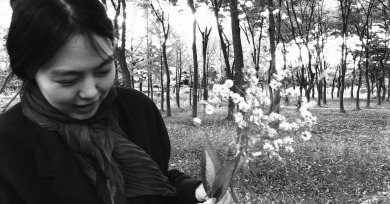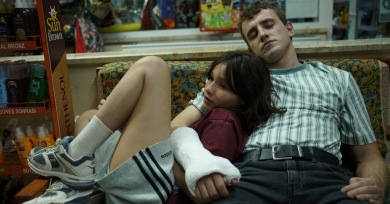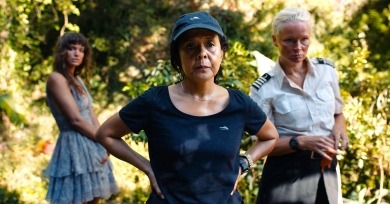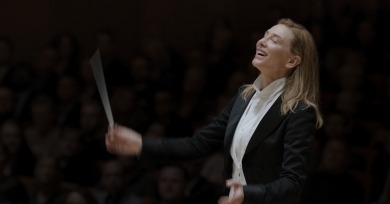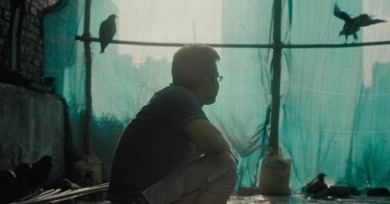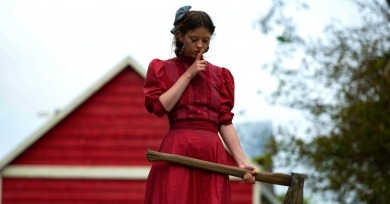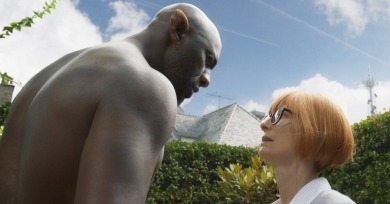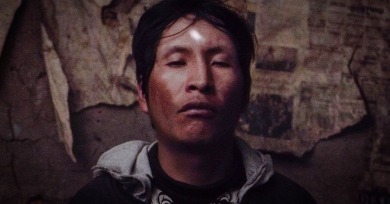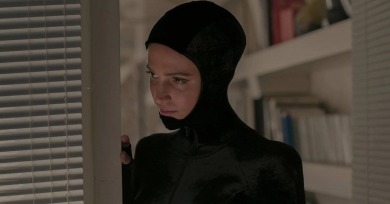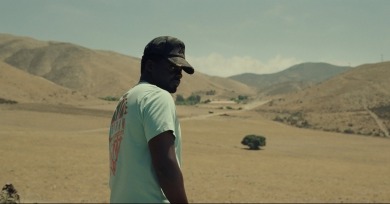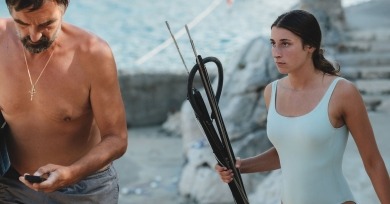Reviews
With this film, Hong and company reflect on how, in middle age, they have willingly submitted themselves more to the potential of randomness in their art.
Aftersun, the feature debut of the Scottish writer-director Charlotte Wells, comes as close as any film I can recall to giving grief a cinematic form that does not seek to explicate but instead embody its very instability.
The writer-director details the obvious: our systems are inherently self-defeating and defined by exploitation, no matter who’s at the top of the food chain.
By the time our maestro is duly disgraced, some may be moved to righteous applause while others are moved to pity. Many might not know how to feel. But the ambivalence feels purposeful.
All That Breathes is a revelation not because it presents a straightforward clash between man and nature but because it understands that man is also nature.
Given a pair of warm bodies and a bed to work with, Denis is peerless at choreographing physical intimacy . . As long as things are more or less transactional, Trish and Daniel hold our attention, but the slow-burning love story is harder to swallow.
Formally, Pearl is his most elegant film, with careful, considered, yet modest compositions and smooth camera movements. West and regular DP Eliot Rockett use the whole wide frame, placing Pearl in the periphery of many shots with the farm consuming the rest, the countryside like a romantic painting spread over the background.
Hold Me Tight, directed by Mathieu Amalric and starring Vicky Krieps, is a wildly original exploration of maternal ambivalence, joy, and mourning.
Where the A. S. Byatt novel is more interested in how it presents historical details and toying with the stories that served as inspiration, insightfully analyzing and discussing everything from Chaucer to One Thousand and One Nights, Miller and co-writer Gore lean into the magic of fantasy.
For those of you who can’t get enough of his 1995 film Heat, widely and reasonably regarded as his masterpiece, well, now there’s Heat 2, a gritty, vivid, 468-page second helping that delivers the goods and also goes to surprising new places.
The neoliberal present demands a new mode of realism, adequate to those structures of control that are cloaked by economic and informational avenues utterly inaccessible to all but the highest echelons of technocratic power.
Is the act of sort-of-remaking, sort-of-updating the niche property Irma Vep an idiosyncratic riff on the IP regurgitation machine of today? Sure, but Assayas only ever seems half interested in Borgesian conceits. He is too earnest an artist.
It is a movie about making movies at the same time that it is a movie about how we consume them. It is a somber commentary on the ways black people try to grasp greased rungs on a ladder to temporary success while also an indictment of the ways people of color try to mold themselves into torturous shapes in order to fit in.
The film frames masculinity as endless, at times excruciating showmanship . . . The director articulates poignantly the heartbreak of familial love crudely bound up in the performance of power.
